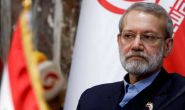- Home
- Middle East
- Jimmy Carter: From Humiliation in Iran to the Historic Camp David Accord
The humiliation of the hostages in Iran will remain a stain on the record of Jimmy Carter, who passed away on Sunday at the age of 100. However, the former U.S. president achieved the first Israeli-Arab peace agreement, one of the successes of a foreign policy long criticized for its perceived weakness.
Even Zbigniew Brzezinski, his national security adviser who passed away in 2017, admitted that "his principal geopolitical setback" was the fall of the Shah of Iran and the rise of the Islamic Republic, still regarded as one of Washington's main threats.
Moreover, an event that shook his presidency followed closely afterward.
On November 4, 1979, Islamist students stormed the U.S. Embassy in Tehran, taking dozens of diplomats and employees hostage. Jimmy Carter severed relations with Iran and imposed a trade embargo, but a military operation to free the hostages ended in failure.
The crisis dragged on for 444 days, contributing significantly to the Democrat's defeat in 1980 after just one term in the White House.
It also tarnished the former president's image for years, on both the left and the right.
"Weakness and Indecision"
"Weakness and indecision," "inconsistency and reversals": even in 2010, American academic Walter Russell Mead painted a merciless picture of the "Carter syndrome." His less interventionist foreign policy was "well-intentioned but flawed," added this expert in the journal Foreign Policy.
According to Mead, Jimmy Carter, confronted by reality, ultimately "supported resistance to the Soviet occupation in Afghanistan, increased defense spending, and laid the groundwork for an expanded American presence in the Middle East." The article prompted a rare response from Carter himself.
"All my actions were planned and announced even before I took office," Carter argued in the same journal. "While it is true that we were not involved in military conflicts during my presidency, I do not see this as a sign of weakness or a reason to apologize," he added, claiming to have "preserved peace" while strengthening the United States' "global influence."
Indeed, in light of the upheavals that have since rocked the world, a more balanced view of the 1977–1981 period is beginning to emerge.
Human Rights
In the Middle East, Carter’s name remains associated with one of the rare diplomatic breakthroughs of recent decades: the Israeli-Egyptian peace accords signed on September 17, 1978, at the presidential retreat at Camp David, paving the way for the first treaty between Israel and an Arab country.
A personal success, as Carter personally pushed Egyptian leader Anwar Sadat and Israeli Prime Minister Menachem Begin to make peace, against the advice of his own advisors, who considered the effort too risky and the chances of success slim.
"Not a single commitment in the peace treaty has been violated," Carter proudly noted years later, observing that "little or no real progress" had been "achieved since."
Robert Strong described the agreement as a "monumental breakthrough" for regional stability that has "surprisingly endured over time and remains a key element of Israel's national security."
Carter’s other major diplomatic success was the 1977 treaty to return full control of the Panama Canal, connecting the Pacific and Atlantic Oceans, to Panama. This pact resolved a longstanding, explosive dispute in relations with Latin America.
To his credit, those seeking to rehabilitate his image also highlight the normalization of relations with Communist China, the modernization of U.S. strategic forces, and progress in arms control with the Soviet Union.
Finally, Jimmy Carter is remembered as the president who made human rights a priority in American diplomacy, particularly in relation to military regimes in Latin America. It was a cause he continued to champion after leaving the Oval Office, earning him the Nobel Peace Prize in 2002.
By Francesco Fontemaggi and Shaun Tandon, AFP
Read more



Comments